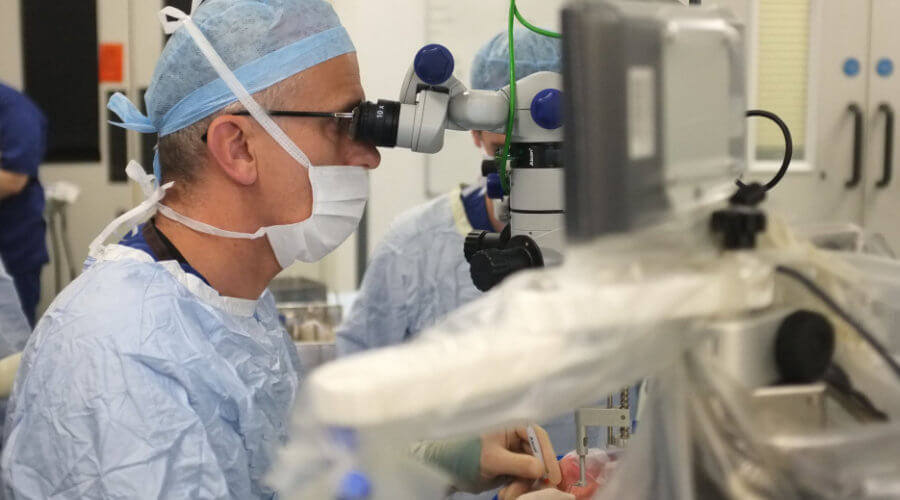020 7490 7222 Book an appointment
As a senior consultant at Moorfields Eye Hospital and laser eye surgeon, David Gartry has seen and has been involved with pioneering technologies and treatments for many years.
Innovation in our world is accelerating at a staggering pace – from revolutionary new Apple iPhones, the new emerging ‘wearables’ market and ‘internet of things’ and indeed the use of new surgical techniques to improve results in an operation. We are in an age where research and development can promise and often deliver real change in our lives.
The retina is one of the key components of the human eye that facilitates vision. If light rays cannot focus onto the retina we cannot see properly. Recently the retina captured the news headlines because British Surgeons at the John Radcliffe hospital in Oxford performed the world’s first robotic operation inside the eye. Professor Robert McLaren was quoted as saying, ‘There is no doubt in my mind that we have just witnessed a vision of eye surgery in the future’.

Photograph: Oxford University Hospitals NHS/PA
As the retina resides at the back of the eye, surgery is complex. In the case of patient Father William Beaver, a priest at St Mary the Virgin church in Oxford, it was necessary to remove membrane 100th of a mm thick from the retina. This membrane had grown and was pulling the retina into an uneven shape therefore distorting the patient’s vision. Usually this procedure is extremely tricky for any surgeon because touching the retina causes some hemorrhage. Using of a robot controlled by a joystick, large maneuvers resulted in tiny incremental movements enabling the membrane to be lifted away safely. The robot can even remove any hand tremor in the surgeon.
After the groundbreaking procedure Father Beaver discussed how his vision was returning and how delighted he was with the surgery as well as being part of such a pioneering treatment.
Whilst new innovations in eye surgery are interesting and will ultimately pave the way for safer, more efficient and superlative procedures, nothing can at present replace the need for an experienced and competent surgeon in the form of a human when it comes to laser eye surgery. It is also of course important to remember that whilst robotics can assist in complex surgery they need to be operated by a very experienced eye surgeon in order to produce a positive outcome for the patient.
Robotic surgery in other specialties is, of course, not new – the best example probably being robotic surgery for prostaite treatment – but robotic surgery with true micro precision (as required in eye surgery) moves the application to a new level. The possibilities are very exciting and perhaps limitless! For example, experienced surgeons could direct robotic surgery by remote without being in the same operating theatre – or even in the same country perhaps!!
Watch this space – and congratulations to Rob McLaren who has been in the news before with revolutionary retinal surgical techniques.